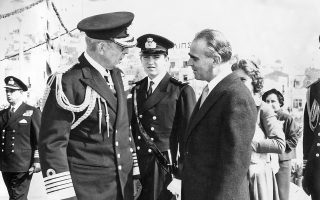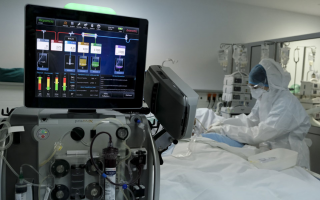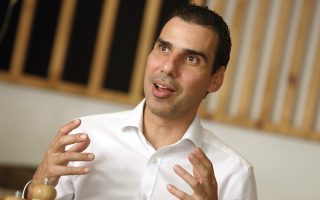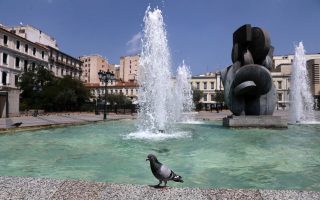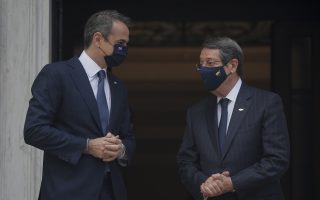How the US averted a Turkish invasion of Cyprus in 1964
Declassified transcript sheds light on unknown US diplomatic efforts to defuse Greek-Turkish tension
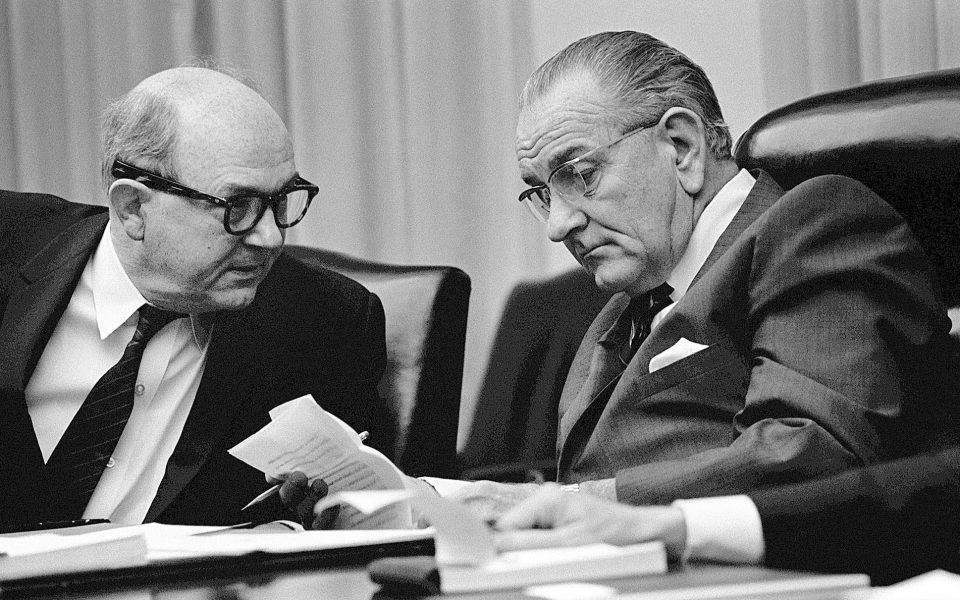
Much has been written about America’s involvement in Greek and Turkish politics. Historians, analysts and ordinary citizens have attempted to decode its actions, with documents, letters and minutes revealing little-known aspects of history.
Only rarely, however, can we become a fly on the wall, understanding why and how decisions were made, as well as the real motives behind them. Here, Kathimerini brings to light a 6-minute conversation that took place in June 1964 between former US president Lyndon B. Johnson and then secretary of state Dean Rusk that does just that with regards to the Cyprus issue.
This recording is now part of Johnson’s declassified archive, revealing backstage diplomatic workings and how, at the height of a Greek-Turkish crisis, the US managed to defuse the situation.
With blunt honesty – occasionally even with cynicism – the two men analyze the moves that needed to be made behind the scenes for the Cypriot crisis to be resolved, but mainly for the fragile balance between Greece and Turkey to be maintained.
The conversation took place just as Johnson had managed to avert a military confrontation between Greece and Turkey by sending a sternly worded letter to Turkish prime minister Ismet Inonu, dated June 6, 1964. “I am gravely concerned by the information which I have had through Ambassador Hare from you and your Foreign Minister that the Turkish Government is contemplating a decision to intervene by military force to occupy a portion of Cyprus,” the American president wrote. Four days later, realizing the potential ramifications of a crisis in Cyprus, Johnson discussed the situation with his secretary of state.
At the very start of the conversation, Rusk suggests that undersecretary George Ball be brought back from London where he was holding talks on the Cyprus issue with the British government. The original plan was for the American diplomat to travel to Greece, but Rusk believes this would send the wrong message to the Greeks: “If he goes to Athens at this point, it could stimulate a good deal of excitement without putting one foot forward.” Rusk argues that they should first reach a decision on the way ahead between themselves. “I think, the point is, that we – that you and he and I and our people working on this – should come to a final conclusion on what we ought to shoot for. And there is not a conclusion on that at the moment, and the conclusion that they have been talking about in London is something that will almost guarantee the Turks would intervene and this is what concerns me,” he says.
President Johnson does not agree. “I think it’s a lot bigger a problem to send him after he gets back over there than let him go while he’s there, don’t you? It looks like it’s just a routine thing, if he’s there now. He’s been touring all over the continent,” he says.
The president believes that Ball would have to deliver a very precise message to Greece’s prime minister, Georgios Papandreou. “If I were secretary of state I’d send Ball to Greece and say: ‘Now, Mr Prime Minister, here is what happened. We were notified that they were going in and invade that night. We prevailed on them not to do it. We don’t think that things are going as they ought to there and we are very concerned about what’s going to happen. And we appeal to you to exercise whatever influence you’ve got with [Archbishop] Makarios to try to let the United Nations work this thing out for you instead of shooting at them and arresting them and capturing them and running off with them. And we just think that if you don’t take some leadership here and move in, as we had to move in with Turkey, that this is going to be a very bloody bath’.”
According to Johnson, the Greek side was prepared to take a leading role in efforts to defuse the situation.
Rusk agrees that this should be the message but adds that they could just as easily speak to the Greek ambassador in Washington, DC. “That would have the greatest weight and influence in Athens,” he points out. Johnson is not convinced. “I don’t think… that Inonu is going to think that’s much, for me to talk to this little ambassador here,” he says.
The president adds: “I think that if he thinks that this man has crossed the waters and gone to Athens and put the heat on them just like we put the heat on the Turks, that he’ll think we are sincere and genuine and we’re really working at it and not going to sleep on it.”
The two men start discussing the possibility of Inonu visiting Washington. “If he does visit, that will be seen as an important step,” says Rusk. Johnson has a different point of view: “I think that the last thing we want him to do is let me be the peacemaker and later wind up on my lap. I think we ought to carry it right to Ankara and Athens. Now that’s my country-boy approach to it.”
Johnson had been open to the prospect of seeing Inonu, before changing his mind. “They’ll say ‘now what in the hell is Lyndon Johnson doing inviting this big mess right in his lap?’ Because I have no solution! I can’t propose anything. He’ll come over here looking for heaven and he’ll find hell.”
The conversation ends with the two men agreeing that, after the “strong message” Johnson had sent Inonu, an approach should be made to Athens. “I need to follow through with the Greeks, and the easiest and simplest and least-noticed way to do it is while Ball is there to spend two hours doing it.”
It would be clear that the visit would also send a message to the Turks. Johnson remarks: “And although you wouldn’t have any final solution or division, you would have at least kept faith and made an effort and followed through on what I told them in this wire instead of saying we went off and went to sleep.”
The two men end the call with Rusk saying that he’d talk to Ball. Indeed, the American diplomat arrived in Athens the following day, on June 10, to personally deliver the president’s message. He would tell journalists that the purpose of the visit was to invite prime minister Papandreou to Washington. At the same time, Inonu’s visit to the US was planned on the condition that the Turkish side would make no aggressive moves against Cyprus until then. President Johnson had – for the time being at least – accomplished his goal.
The context
Aware of Turkeys’ intention to become involved in Cypriot politics, the president of Cyprus, Archbishop Makarios, recommended a reform of the constitution in November 1963. Makarios had not discussed the proposal with Athens. Turkey rejected the idea, before the Turkish-Cypriots had a chance to respond.
Intercommunal violence broke out at Christmas that same year. The Turkish Cypriots left the administration and Turkey stopped recognizing the Republic of Cyprus. Turkey threatened twice to invade in January and March 1964 but stood down after American warnings.
President Lyndon B. Johnson warned Ismet Inonu that the US would leave Turkey defenseless against the Soviet Union if it invaded Cyprus.
The US then engaged in extensive rounds of diplomatic talks in order to defuse the tension. Johnson met both Inonu and Greek prime minister Georgios Papandreou in Washington.
